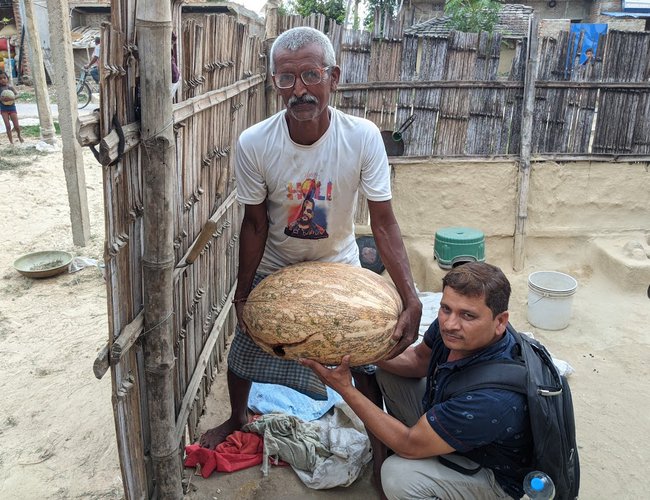
Riverbed farming has changed things for Dalits and other marginalized groups in Gajara Tole, Ward 3, Laxminiyapur Rural Municipality, Dhanusha District. It is 300 kilometers south of Kathmandu. RbF is now a source of income, nutrition, and food security.
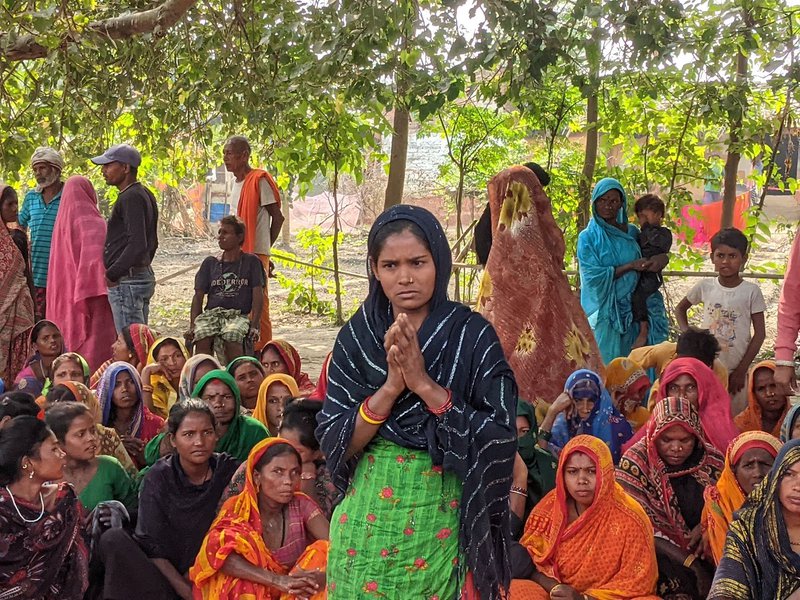
Forty households have formed two groups: Ram Janaki Bagarkheti Samuha and Bajrangbali Bagar Kheti Samuha. With support from Helvetas Nepal’s Riverbed Farming Project, Manab Kalyan Samaj Nepal is implementing programs in the community, improving the economic and nutritional and food security status of poor Dalit settlements.
Binita Devi Das, 28, a mother of two, used to only get vegetables, eggs, and meat during festivals or weddings. We used to eat two items for breakfast and two for dinner. "We ate five or six items when we got food from landlords and upper cast people at festivals and ceremonies," said Das, head of Ram Janaki Bagarkheti Group.
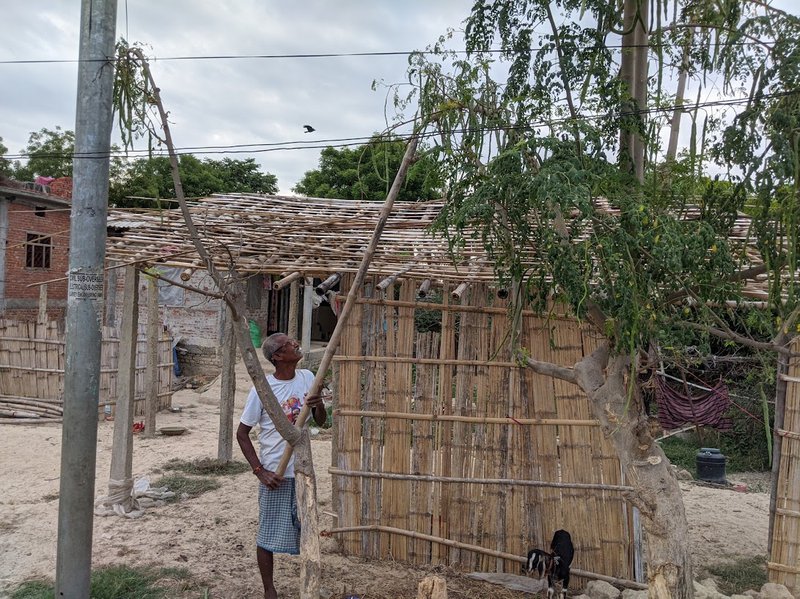
Binita is married to a Dalit from Bhangaha, Dhanusha. Her father's home is different now. “My father’s kitchen has been diverse in food for five years. They have two to three vegetables in their own gardens by the river. These include beans, tomatoes, pumpkins, watermelons, gourds, pointed gourds, brinjal, cucumbers and cabbage.
Helvetas Nepal has shown that RbF has helped Dalit and marginalized communities earn more money. Cucurbits grown in riverbeds provide poor and marginalized people with vitamins, minerals, protein, and vegetable oil.People eat these vegetables and sell them in local markets to make money.
Ram Janam Sada, 65, Mushar is also growing vegetables next to the village on the bank of the Aurahi river.Sada earns about Rs. 60,000.00 (USD 500) from river bed farming on 3 Kathha (10935 square feet of land). "River bed farming earns enough money to buy essentials like oil, lentils, and wheat."I don't have to buy vegetables from the market anymore," said Sada.
I can see a difference in the faces of pregnant women and children. "They look healthier and stronger than four years ago," Sada says. Sada also takes care of vegetables and watermelon.“All four of us are busy here from October to June before the monsoon and flood,” said Sada. “We eat vegetables with every meal.”
Manab Samaj Nepal, a local partner, has been implementing River Bed Farming in Ward 3 Gajaria Dalit Settlement with the support of Helvetas-Nepal.
Nirmala Devi Sada, 30, is a member of the Bajrangbali Group. She is also growing vegetables on two acres of land. She has two children and four family members. “The river and barren banks were there, but we never thought of growing vegetables here. We had a very bad experience with flooding,” said Sada.
“Four years ago, people from Manab Kalyan Samaj Nepal came to our village and taught us how to plow and grow vegetables. This was the start of a change in our lives," said Sada, who also made Rs. 50,000 last year. "This is a lot of money." Our riverbank is small, so there is not much land to grow vegetables.”
Riverbed farming helps poor farmers in the Madhes region make a living. "It has helped them make money, feed their families, and be more secure," said Hari Gurung, Helvetas Nepal’s InElam team leader. Cucurbits are the main crops grown in riverbed farming. They can adapt to harsh environments because they have long taproots that can extract nutrients and water from deep in the soil.
Like other farmers, landless farmers in Gajaria prepare fields and grow vegetables and fruits in riverbanks after the monsoon season.
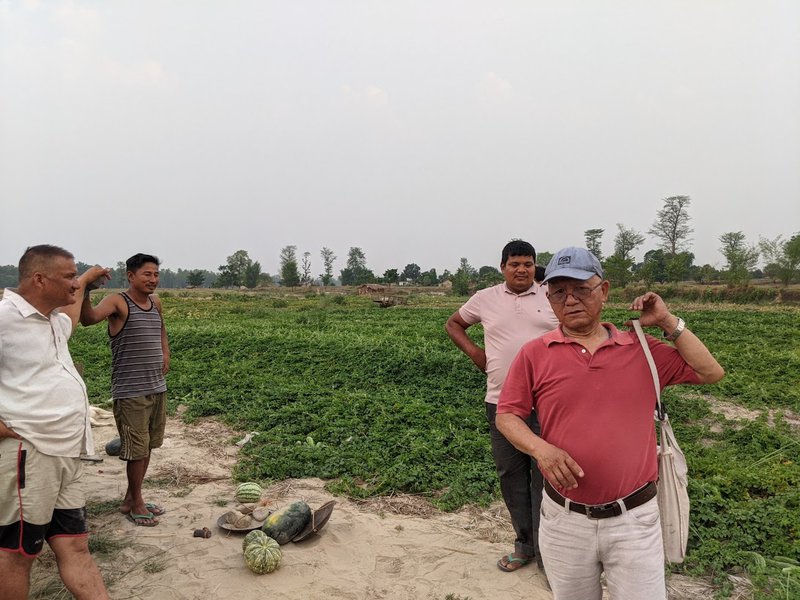
The first crop grown in riverbeds was watermelon and matsum. Now, many cucurbit crops are being grown in the riverbeds. Farmers are also growing beans.
Gurung said that eating at least 3-4 different vegetables a day helps families eat better than they did in the past.
As RbF becomes more popular, local governments are supporting it because it helps farmers make money and provides food for their families.
Many Dalits in our area don't have land. "Farming on riverbanks helps landless farmers make a living and increases productivity," said Bhogendra Mishra, Mayor of Rural Municipality. We work with Manab Kalayan Samaj to make riverbed farming work. The municipality helped farmers in ward 3 by installing a 300-meter deep irrigation system. "We help landless farmers by giving them fertilizer and seeds," said Mishra. The municipality is also supporting river bed farming in Ward 2. Seventeen farmers' groups in our municipality are involved in river bed farming.
River bed farming, also called "Bagar Kheti" in Nepal, is becoming more popular in Nepal's plains. It is an alternative form of agriculture for poor and landless farmers to improve their food security. This is good for 1.8 million people without land and about 4 million others who don't have enough food.
Supported by Helvetas Nepal’s Riverbed Farming Project and the Manab Kalyan Samaj Nepal, a local NGO, in collaboration with Laxminiya Rural Municipality, has played a crucial role in the successful implementation of RbF programs. These efforts have not only improved the economic status but also the nutritional status of the impoverished Dalit settlements in the area.
Das, along with other marginalized farmers practicing Riverbed Farming nationwide, participated in exchanging vegetables and watermelon through barter. Due to their limited cultivating land, these farmers traded their produce for rice and wheat, thus significantly enhancing food security.
Das mentioned, "I have traded one quintal of wheat for my vegetables and watermelon. In rural regions lacking monetary resources, our vegetables are exchanged for rice and wheat."
Manab Kalyan Samaj Nepal is implementing riverbed farming with the support of Helvetas Nepal in five local Palikas in Dhanusha district. The project has also been implemented in Chhireshwarnath Municipality, Mithila Bihari Municipality, Hanspur Municipality, and Dhanushadham Municipality in the district. "We work with local Palikas on all our programs," said Pramod Yadav, Head of Manab Kalyan Samaj.
Helvetas Nepal also helped install 300 meters of bores to irrigate the land in Gajaria. We also gave farmers seeds, fertilizers, and other equipment,” Yadav said.
Local governments in Madhesh are supporting RbF. The Provincial government and Ministry of Land Management, Agriculture and Cooperatives have already endorsed RbF.
"We have asked the District Level Agriculture Knowledge Center to help poor and landless farmers with seeds, fertilizers, and other supplies," said Roshan Kumar Mehata, Senior Agriculture Officer of Madhesh Province. “We need to give land to poor and landless communities across the province to improve food security and nutrition. Riverbed farming is a good choice."
"With the aid from Helvetas Nepal, we have also installed 300 meters deep borings in Gajaria to irrigate the land, and have provided essential resources such as seeds, fertilizers, and other necessary equipment to the farmers," Yadav added.
As local governing bodies begin to recognize the potential of river bank farming in Madhesh, the provincial government and Ministry of Land Management, Agriculture, and Cooperatives have already endorsed these projects as part of their annual schemes.
"For the sake of food security and nutrition, it is crucial to allocate land to the impoverished and landless communities across the province. These communities have been unused for far too long; river bank farming offers a practical solution," said Roshan Kumar Mehata, Senior Agriculture Officer for Madhesh Province.
Given the significance of food security and nutrition, the Dalits and marginalized individuals in Ward 3 of Laxminiya Rural Municipality are making strides. The income generated from river bank farming is being used to purchase food, and the surplus vegetables are being fed to the families.
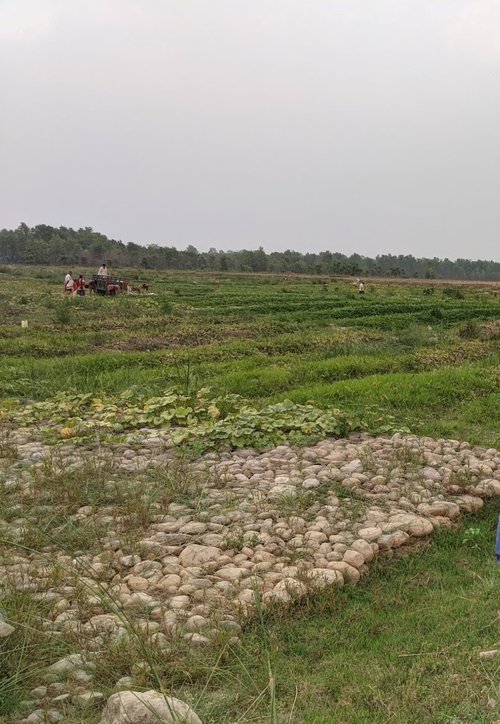
The primary factors that contribute to proper nutrition include having access to sufficient and nutritious food, along with clean environments. A study from Dalit communities in the Laxminiya Rural Municipality has shown that farming is essential for nutrition, as it directly affects the food that families eat and also supports their ability to earn a living and manage their food supply.
Experiences from the Rajasthan Food For Fog (RbF) program in a small Dalit community have also shown that focusing on agriculture is an important first step in efforts to enhance nutrition and livelihoods.
This is not only in the Dalit settlement of Laxminiya Rural Municipality of Dhanusha District, Mukta Kamiya Camp, and other poor settlements in Kalali, Kanchanpur of Sudur Paschim and Morang and Jhapa of Koshi.
People need access to good food and a healthy environment to be healthy. Dalits in Laxminiya Rural Municipality have shown that agriculture is important for nutrition. It affects how much food people eat and their livelihoods.
Riverbed farming is a good way for poor people without land to make a living, especially in the Madhes region. This farming method has helped people make money and eat better.
“Helvetas-Nepal has been implementing projects to improve the livelihood of poor, marginalized and landless. Riverbed farming is one of the program introduced in Nepal by Helvetas-Nepal early 2006/07 This has also established new development discourse in Nepal,” said Dr.Prabin Manandhar, country director, Helvetas-Nepal.
The experience of RbF in the small Dalit settlement has also shown that agricultural development is a necessary entry point for efforts to improve nutrition and livelihoods.
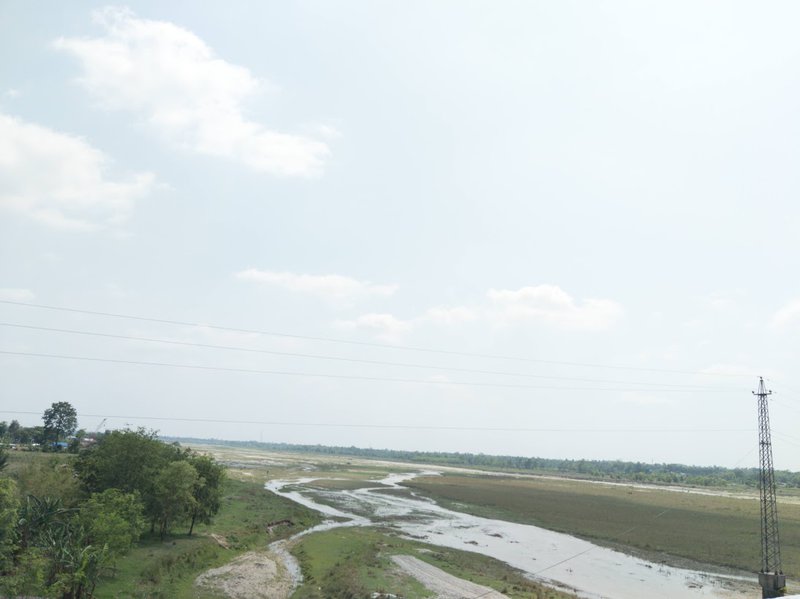
The RbF project in a small Dalit settlement has shown that supporting agricultural is a good way to improve nutrition and food security. Helvetas-Nepal's support for the RbF project has helped address food security and malnutrition issues faced by small farmers, landless people, and land-poor marginalized groups not only in Madhesh province but also in Kosi and Sudur Paschim.

Keshab Poudel
Poudel is the editor of New Spotlight Magazine.
- FOURTH PROFESSOR Y.N. KHANAL LECTURE: Nepal-China Relations
- Jun 23, 2025
- Colonel JP CROSS: Centenary Birthday
- Jun 23, 2025
- REEEP-GREEN: Empowering Communities with MEP
- Jun 16, 2025
- BEEN: Retrofitted For Green
- May 28, 2025
- GGGI has been promoting green growth in Nepal for a decade: Dr. Malle Fofana
- May 21, 2025















